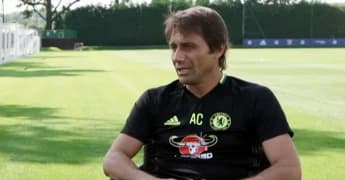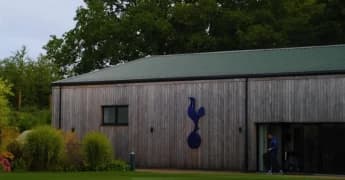Barcelona’s Late Collapse Exposes Flick’s Growing Concern Over Costly Final-Minute Failures

Barcelona’s late-game lapses return to haunt them as Flick pushes for stronger finishes to keep their title hopes alive.
A Familiar Problem Returns to Haunt Barcelona
For FC Barcelona, Wednesday night was more than just an ordinary defeat; it was a painful reminder of an old habit they cannot seem to shake. A 1-2 loss to Paris Saint-Germain at Estadi Olímpic Lluís Companys marked their first setback of the 2025/26 season, and once again, it was the final minutes that proved fatal.
Gonçalo Ramos struck deep into stoppage time, delivering the knockout blow that left Hansi Flick visibly frustrated on the touchline. The German coach’s growing irritation was not only about the loss itself but also about a recurring flaw that continues to undermine his side: their inability to control the final stages of crucial matches.
Flick’s Frustration Boils Over After Late PSG Winner
Since taking charge, Flick has preached one message above all: composure, structure, and calmness in the dying moments. Yet his players failed to deliver when it mattered most. Barcelona’s rhythm crumbled after the hour mark, and PSG’s intensity began to overwhelm them.
The decisive blow came with seconds to spare. Alejandro Balde, too far upfield and out of position, left a gaping hole in the defense. Ramos capitalized, pouncing to score the winner that stunned the home crowd. Flick’s post-match remarks reflected his exasperation:
“We must stay strong for the full ninety minutes. Our defending needs to be sharper, our possession more controlled, and our use of space more intelligent.”
Late Collapses: A Pattern That Won’t Go Away
Unfortunately for Barcelona, this is not an isolated incident. Late-game collapses have haunted them time and again. Last season’s Champions League semi-final defeat to Inter Milan was shaped by a similar lapse, as was the Copa del Rey semi-final against Atlético Madrid, where Alexander Sorloth punished them with decisive late goals.
Even moments of progress, like the disciplined win over Newcastle on matchday one, where they successfully defended a 1-2 lead, have been overshadowed by setbacks like the PSG defeat. These repeated stumbles underline a fundamental weakness that Flick is determined to fix.
High-Intensity Style Meets Its Breaking Point
Barcelona’s trademark approach, relentless pressing, direct attacks, and vertical transitions, often overwhelms opponents early on. But that high-octane style comes at a cost. As legs tire and opponents grow bolder, the intensity drops, and cracks begin to show. PSG exploited those cracks ruthlessly.
Flick understands that mastering late-game control is not just desirable, it’s essential. If Barcelona want to compete for silverware, they must learn how to hold onto leads, stay compact, and slow the tempo when needed. The final minutes are no longer just about surviving; they’re about executing with discipline and intelligence.
ConclusionBarcelona’s loss to PSG was more than a blip on their season’s record it was a warning sign. Flick’s visible frustration speaks volumes about a deeper, systemic problem: his team’s recurring inability to finish matches with authority.
With decisive fixtures on the horizon, how well Barcelona addresses this flaw could define their season. The difference between champions and contenders often lies in those final, tense minutes. For Flick and his men, mastering them is no longer optional; it’s imperative.






